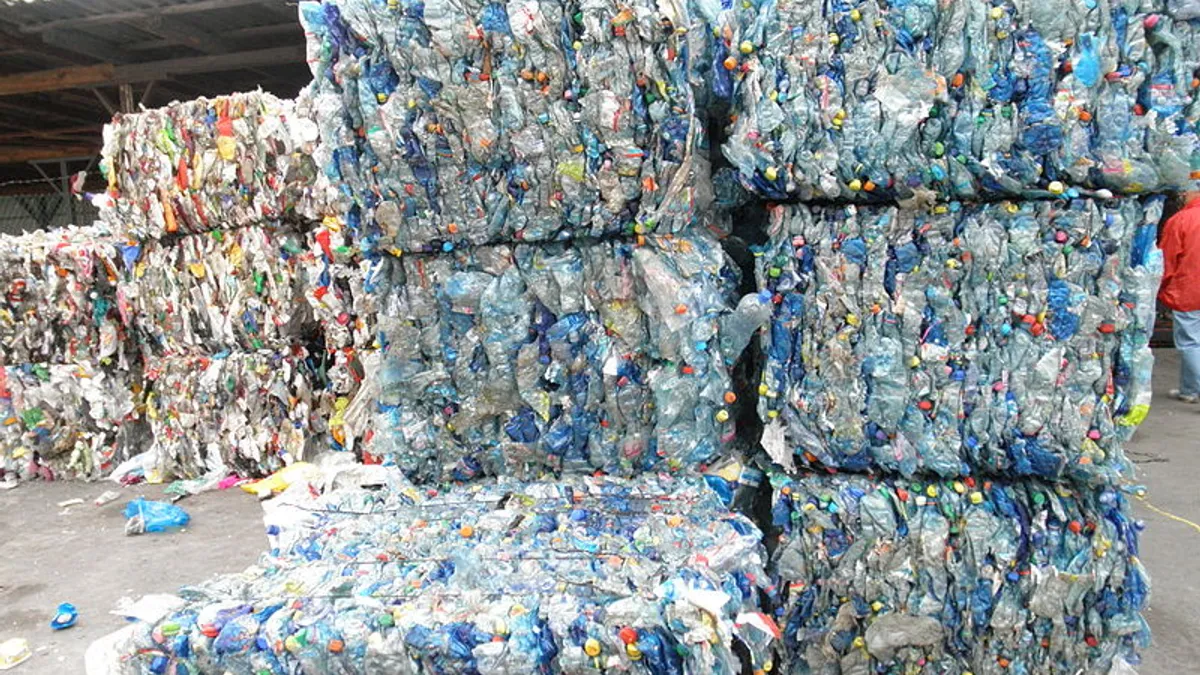Dive Brief:
- A project called "Plastic Packaging Recycling using Intelligent Separation technologies for Materials" (PRISM), led by a consortium, has been awarded $1 million from Innovate UK and the Engineering and Physical Sciences Research Council to develop a low-cost way to sort recyclables, namely plastics.
- The sorting process involves fluorescent marking technology, which has been described as similar to an invisible barcode; it captures a label’s unique code created by the label’s typically invisible luminescent compounds. The technology, which uses UV light waves, can then identify and sort by material, for instance distinguishing food-grade polymers from non-food-grade.
- UK’s WRAP partnered with Nextek on the trial’s first phase, which examined identification and separation while working to achieve a 98% yield and 95% purity. The second phase, now taking place, is looking at additional fluorescent compounds, their reaction as they move along the supply chain, and whether markers hold up after reprocessing. The project group said in a statement that the fluorescent label sorting system would work with near infra-red (NIR) sorting systems already used in materials recovery facilities.
Dive Insight:
Sensor technology using light waves such as near infrared has made it possible to achieve purity levels as high as 99.9% for separated plastics. Recycling tech experts, scientists who have studied fluorescent marking, and environmentalists think this new concept of PRISM could lead to something bigger, helping to boost recycling at slightly less cost and with more efficiency for more materials.
WRAP's Packaging Program Area Manager, Claire Shrewsbury, was especially excited about the technology’s potential expanded reach in that it could sort materials such as polypropylene packaging, high-density polyethylene milk bottles, and sleeved polyethylene terephthalate.
Professor Rafi Ahmad, who works with Nextek, has long researched fluorescent markers and said in a statement: "With UK recycling targets for plastics set to rise by 2017, the country needs to do much more to optimize collection and sorting. With the PRISM technology, different combinations of a limited number of fluorescent pigments used on labels open up cost-effective routes to high-grade sorting."
PRISM partners estimate that fluorescent inks would very slightly increase labels’ cost, and that the concept could work to pick out materials beyond plastics, including those in the Waste Electrical and Electronic Equipment (WEEE) and automotive recycling streams.













